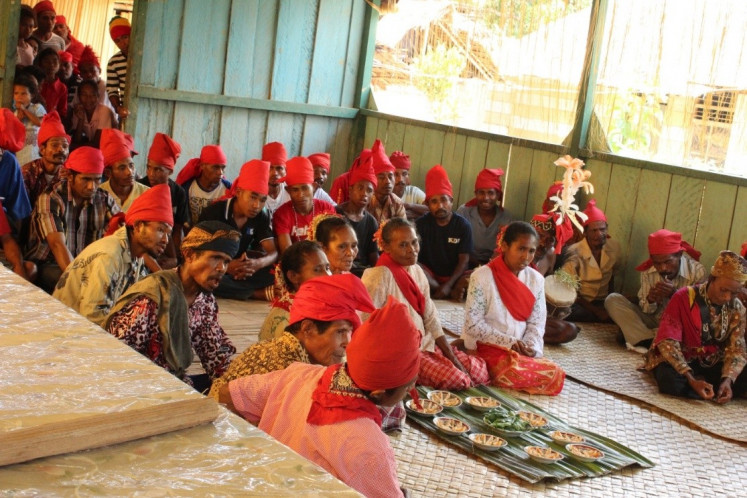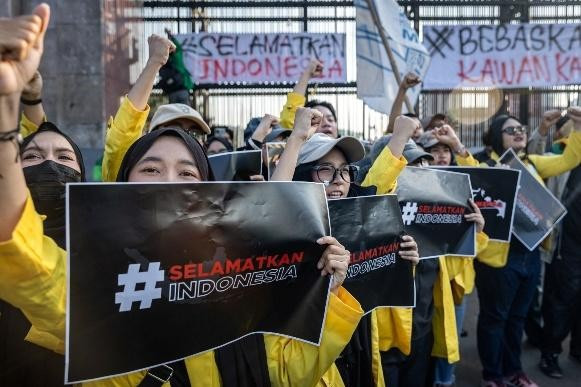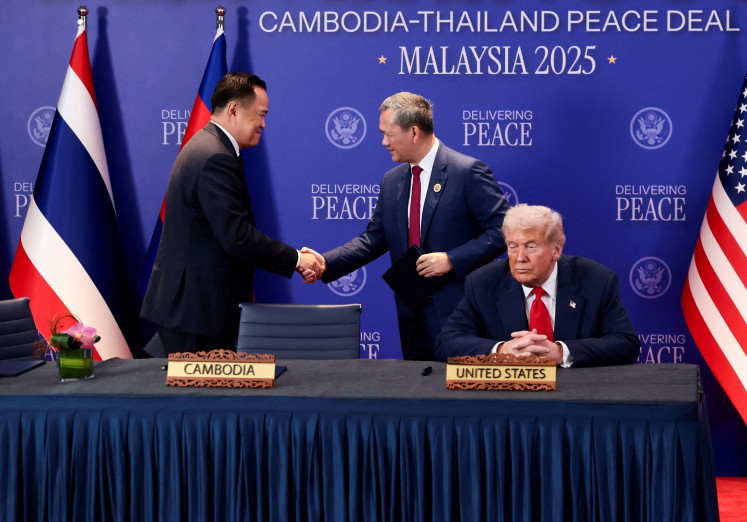Popular Reads
Top Results
Can't find what you're looking for?
View all search resultsPopular Reads
Top Results
Can't find what you're looking for?
View all search resultsTrade agreements put our right to water at risk
Change text size
Gift Premium Articles
to Anyone
G
overnment representatives from 16 countries in the region met in Bali recently to continue negotiations for a new regional trade agreement, the Regional Comprehensive Economic Partnership (RCEP). If successful, the deal will create the world’s largest free trade area, covering more than half the world’s population. It includes China, India, all ASEAN countries as well as Australia, New Zealand, Japan and South Korea.
Trade agreements like the RCEP are designed to make it easier for foreign multinational corporations to invest and do business. In doing so, they put the rights of citizens and workers second to profits. Agreements usually include commitments to cut government regulations on corporations (like setting price limits, quality guarantees or staffing levels).
They also include investor protection that allows foreign multinational companies (but not local companies) to sue our government at international tribunals if the government applies any regulation or policy that the investor thinks has reduced their profit or might reduce their profit.
Jakartans won a great victory when the Supreme Court ordered that Jakarta’s water must be returned to the public. The court decided that the human right to water had been violated and that the companies had failed to guarantee an adequate supply of clean, potable water to the city’s residents. Despite delays and appeals, Jakarta Governor Anies Baswedan says he is planning to take back control of tap water. This is significant for the capital as we commemorate World Water Day on March 22.
The Jakarta Water Workers’ Union (SP PDAM) supports the steps taken by the governor to put the water back into public hands in the city. Private providers have failed to improve services to the city’s residents both from the technical and nontechnical sides. This has resulted in the rejection of the private companies by the city’s residents and various other parties. Furthermore, this is in accordance with both the 1945 Constitution (Article 33), which reads “land, water and natural resources contained therein are controlled by the State and are used for the greatest prosperity of the people”, as well as the United Nations Convention on the Right to Water.
Private providers have failed to improve services to the city’s residents.


















